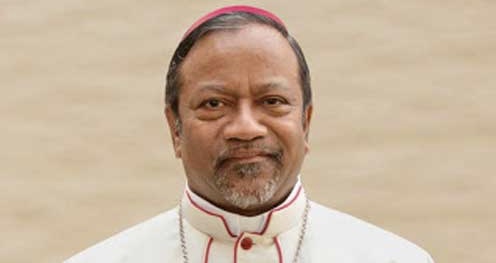Last week, the Karnataka government took the ordinance route to pass an anti-conversion bill. The bill aims to prevent conversion using allurement, coercion, force, fraudulent means, and mass conversion events. According to the government, these instances cause disturbance to the public order in the state.
Karnataka Governor Thawar Chand Gehlot assented to the law on Tuesday and brought it to force. As per the anti-conversion rule, forced conversion will attract imprisonment for 3-10 years and a fine of Rs.25,000. Converting a minor, woman, or SC/ST person will draw a 3-10 years jail term and fine of Rs.50,000. And mass conversion will result in 3-10 years imprisonment and 1 lakh rupees fine.
“Deeply hurt,” says Bengaluru Archbishop
However, on Wednesday, the Archbishop of Bengaluru, Peter Machado, expressed his displeasure over the anti-conversion law.
He said, “The entire Christian community is deeply hurt and is disturbed that the government let down the Christian populace living in the state.”
“For the last two months, we have repeatedly drawn the attention of the state government and general public that this said bill is irrelevant and malicious. And it only aimed at dividing the Christians from other religious minorities.”
He also said, “The Christian community feels betrayed as its selfless services in education, healthcare, and other sectors, have not been given consideration.”
Is Archbishop Peter Machado’s statement an admission?
Now, why should the Archbishop be disappointed over the anti-conversion law? Does he fear the state would use the law to target the Christian community? Or is he worried the curbs on conversion could affect the Christian missionaries indulging in it?
At the outset, it doesn’t appear that the law has any scope for witch-hunting. So conversions that happened until now won’t become a target. However, the law might instill fear among institutions fostering religious conversion.
But it’s intriguing when Archbishop Peter Machado comes out vocal and says the government has betrayed the Christian populace in the state. Only if conversion is a religious agenda should anyone feel disturbed by the anti-conversion law. So the Archbishop’s statement is more like an admission that some Christian missionaries promote religious conversions, and the law affects their religious motive.
Can the law stop conversions?
Yes, to some extent. Mass conversion events in Karnataka might stop as organizers will now fear legal action. That’s on the one side. On the other side, we see institutions that lure vulnerable people by promising admissions into schools and colleges for their children also financial assistance. A person receiving such favors, even when questioned by law enforcement agencies, will only say, “I got converted willfully.”
Why do some Hindus get converted to Christianity?
Other than financial reasons, caste discrimination by some upper-caste Hindus is another reason for religious conversions among backward, scheduled castes, and scheduled tribes communities.
The ruling Bharatiya Janata Party (BJP) should first enact laws against caste discrimination if it is concerned about Hindus converting to other religions. Minimum, if people feel accepted and given equal treatment within their religion, they will not find a need to convert to another faith.

